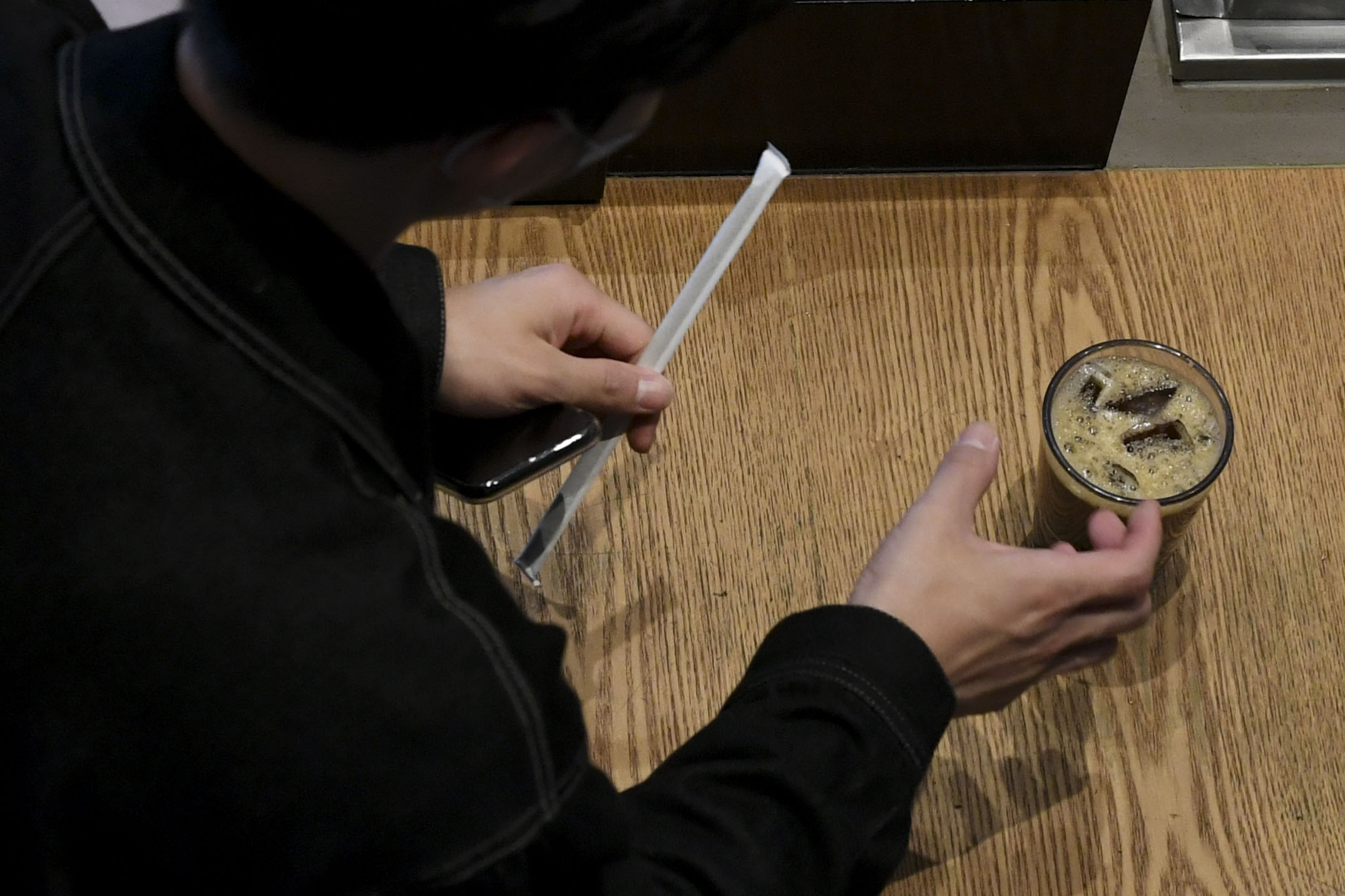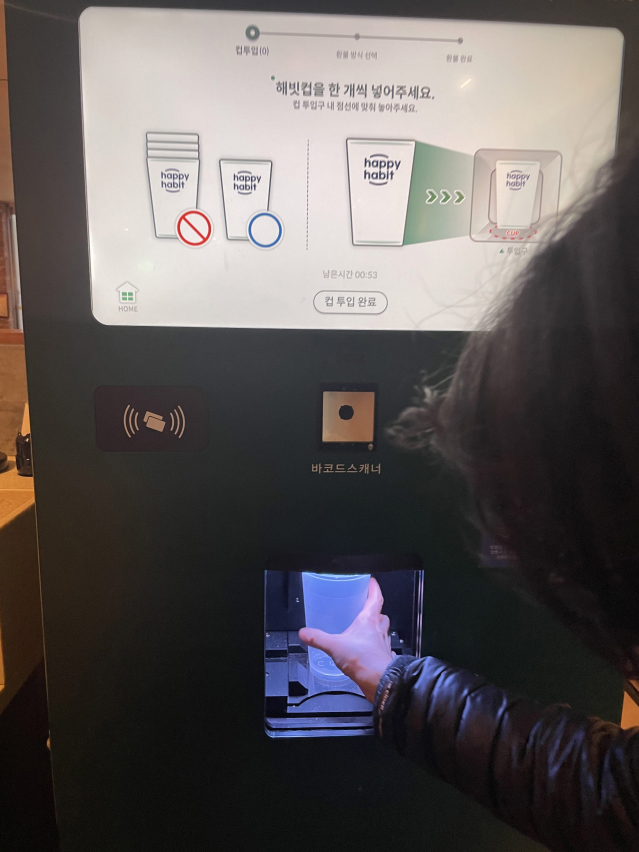[Apr] Korea boosts green drive with resumed ban on plastic utensils
Date Apr 25, 2022
 Seoul coffee shops are serving beverages in reusable cups like this one.
Seoul coffee shops are serving beverages in reusable cups like this one.
Korea is stepping up its effort to reduce plastic waste, as seen in the recent resumption of a ban on the use of disposable cups and utensils in restaurants, coffee shops, bakeries and convenience stores. Supplying them with take-out orders is still allowed.
 A customer places a single-use cup into the “ecoshop” at a Starbucks for a 1,000 won refund. Korea began to prohibit the use of disposable cups and utensils at restaurants on April 1.
A customer places a single-use cup into the “ecoshop” at a Starbucks for a 1,000 won refund. Korea began to prohibit the use of disposable cups and utensils at restaurants on April 1.
The ban that took effect April 1 was first imposed in August 2018, about two years before it was lifted in February 2020 to prevent the spread of COVID-19 infections.
The Ministry of Environment intends to raise awareness of the new rule before imposing the planned 3 million won (US$2,460) fine.
According to the new regulations, customers staying in the shop must have their beverages served in a mug.
Starbucks Korea has put in place a green policy whereby customers are charged 1,000 won per plastic cup, but refunds are provided if the cups are deposited in a special vending machine after use. The policy is in effect at select Starbucks.
Starbucks Korea expects the policy to contribute greatly to reducing plastic waste. Customers might experience some inconvenience because of the policy, especially since they have to bring their used cups back to get the refund, but the campaign will hopefully raise awareness of the importance of protecting the environment.
“The ultimate goal is to encourage customers to use their own cups,” a Starbucks Korea spokesperson said.
Kim Sung-yeon, an office worker in her 30s and a tumbler user, said that the ban is a step in the right direction. “I used to think using a tumbler was only for those who enjoy making grand statements just to feel morally superior, but I’ve since changed. I realized that joining the green campaign is about finding something that I can do, not about appearing better than others. Using a tumbler is my way of contributing to protecting the planet.”
The ministry’s measure comes amid the COVID-19 pandemic-induced spike in the use of plastic products over the past two years. To protect themselves and slow the spread of the virus, many people have been ordering takeout to avoid crowds.
According to a Statistics Korea report on the U.N.’s Sustainable Development Goals released on April 6, waste from paper and plastics increased about 20 percent compared to before the outbreak of the COVID-19 pandemic. The SDGs comprise 17 goals announced at the U.N. General Assembly in September 2015. All U.N. member states are to achieve the initiative’s goals jointly by 2030.
Data from the Ministry of Environment and the Korea Environment Corp. cited in the report indicated that Korea had produced 932 tons of paper waste in 2020, up 24.8 percent from the 2019 pre-pandemic level.
The amount of waste from disposable products, including plastics and Styrofoam, increased 18.9 percent and 14.4 percent, respectively.
**If you have any questions about this article, feel free to contact us at kocis@korea.kr.**

The Ministry of Culture, Sports and Tourism's "Korea Here & Now" work can be used under the condition of "Public Nuri Type 1 (Source Indication)."




